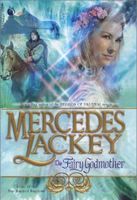Joanna Bellamy was tickled pink to be chaperoning a bevy of nervous, excited mail-order brides to the small European country of Andorra.I love different, and sure, this one is like no other Harlequin I've ever read. But just being different is not enough. The Basque Swallow feels like a pale imitation of those Mary Stewart books I've loved so much. A C-.
The appearance on shipboard of a sinister stranger was the society matron's first inkling that there was more to the trip than met the eye.
Lucien Soileau claimed to be an art dealer, but business wasn't the reason the tall Frenchman with the hooded eyes pursued the brides to the rugged Andorran countryside.
An ocean away from family and friends, Joanna was caught in a viper's nest of danger and deception - and she wasn't sure she could even trust her heart.
For starters, I had a huge problem with the initial, basic setup. The mail-order bride thing seems hard to believe. Not really that the women would go to Europe to be mail-order brides... that I could have bought without a problem. People are capable of anything. The thing is, though, that this business was so obviously a cover for something!
I mean, did Joanna never wonder it all worked? Were did the money to finance the whole operation come from? A luxurious cruise, transport and lodging within Europe, various entertainents for eight people, that must cost a nice bundle of money. Were the men, modest Andorran farmers, supposed to have paid enough money to this Cupid Cruise service to cover all this? As well as enough money to give an obviously rich guy like Don Maitland a juicy enough profit that he felt compelled to spend a lot of his valuable time on the project? I'm sorry, but that is so obviously nonsense that Joanna comes off like a fool for never realizing until so late in the game that things didn't add up.
Part of the charm of books like this one is the travelling in exotic, different places. The action in The Basque Swallow wanders around locations that could have been wonderful: Lisbon, Barcelona, Andorra, Paris, the Pyrinées, we spend time in all those places. And we never get even a smidgen of feel for them. There's just no local colour here. In Mary Stewart's books, you feel as if you are right there, you actually see and breathe the places she describes. Daniels doesn't even try. And even the few little details she does put in are sometimes wrong, like her saying that people in Barcelona don't speak Spanish. Er, yes they do. That some of them might refuse to speak it, much in the way French people are reputed to refuse to speak English to tourists, even when they know the language, is another thing.
Then there's also the way any suspense peters out even before the half-way point. The first part is intriguing enough... what is Cheryl up to? Who is Lucien? What's so important about that spot in the mountains? But we find out every single detail of this quickly enough, and the rest of the book is basically about our heroine and hero being pursued by a perfectly insane villain.
And that was part of the problem. This villain did things without any rhyme or reason. I can understand him being obsessed with this thing he wanted, but the way he tried to go after it was just without any logic whatsoever and without a prayer of succeeding. I don't get it, because Daniels obviously realizes this (she has Joanna and Lucien discuss this very thing). It feels to me as if she just couldn't find a way to give him a believable motivation for what she needed for the plot, so she said: "ok, it makes no sense, but I need this to happen, so I'll just make the guy crazy so he doesn't need to make sense".
The book had an uncomfortably old-fashioned feel. I was never 100% sure of when exactly it was set, which drove me crazy. Every clue seems to point to the late 80s, early 90s (and the copyright of the book is 1991, which would make sense), but there were many other little details which would have fit a story set in the 60s better.
Not all is bad, though. The hero and heroine were pretty all right. Joanna's an interesting, sensible woman, not a damsel in distress but a smart woman who always rises to the occasion. And Lucien is an interesting, very nice guy, even if he's a little too mysterious and we never get to know him completely. I especially liked that these were mature people, near their forties, and they act grown-up. No hysterical protests from Joanna about staying at a safe house, no insisting in getting herself into danger just because.
Unfortunately, this is not enough to save the book. A very disappointing read.
 I've wanted to read
I've wanted to read 